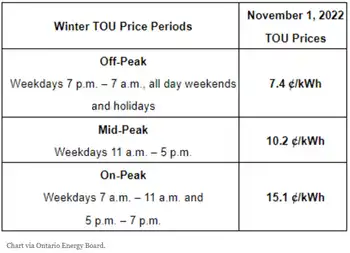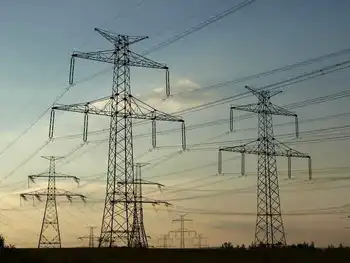Let's see why grid watchdog barked
Expose possible abuses found by an internal watchdog at PJM Interconnection, the regional grid manager. Identify the generation company he said reaped $20 million in "excess payments" over two weeks. Find out who might be getting away with similar shenanigans.
Here in Central Maryland we just got a 72 percent electric-price pop. We want as clear a view of our deregulated electricity market as Californians got of theirs after the Enron debacle, and this case looks like it'll help. PJM is the nonprofit Pennsylvania company that supervises the grid and runs the wholesale electricity market from New Jersey to North Carolina.
Maryland and other states have sought redress with the Federal Energy Regulatory Commission over claims by PJM market monitor Joseph Bowring that his bosses silenced him when he wanted to report price irregularities and outsized profits at generation companies. They want Bowring's operation made independent.
PJM's apparently panicked offer to settle, disclosed recently, suggests that some very interesting evidence will surface if the case is pursued. Only a month ago PJM rejected Bowring's allegations, accusing him in a federal filing of distorting facts and "dramatic language, rhetoric and innuendo." The regulatory complaint, the grid manager said, "promptly should be dismissed." PJM chief executive Phillip Harris told employees at a company luau that "we never asked for a market monitor" but had to have one under federal rules, according to a recording of the event.
Now Harris is gone, shocking the industry by "retiring" two weeks ago. PJM recently caved in and offered to settle, suggesting that Bowring report to PJM's board rather than to PJM executives. PJM didn't even wait for the completion of its own investigation of Bowring's allegations.
What happened? I can only assume that generation and transmission companies, who wield great influence with PJM's board, didn't want to see the case advance and said so. ("I can't speak to any discussions between the board and certain members," said PJM spokesman Terry Williamson.) Litigating the matter would produce documents illuminating the grid's dark corners and Bowring's allegations that generators sometimes have the ability to exert "market power" - a euphemism for monopoly profits reaped during periods of high demand.
Such investigation in other parts of the country has revealed outrage and thievery. Enron and other companies overcharged Western electricity customers billions by withholding power, filing false transmission schedules and other manipulation, court cases showed.
The Enron misdeeds were not obvious at first; they emerged only after California legislators forced the company to divulge trading data. Staff at the Texas Public Utility Commission recently recommended fining TXU Energy $210 million for alleged price manipulation. In Illinois, generation companies just agreed to a billion-dollar customer rebate after the attorney general alleged wholesale auctions were rigged in their favor.
Unfortunately, critical evidence in Illinois was sealed and will probably never be revealed now. But at least customers got some dough. Maybe you can see why PJM wants to end the Bowring case "without further evidentiary or other hearings," as its settlement offer requests.
Even if the wholesale market were shown to be crooked, it wouldn't explain all the electric-price pain in Maryland. Part is caused by costlier natural gas to fuel generators. Some is caused by the wholesale market's very existence - flawed or not: Now that Baltimore Gas and Electric and other utilities must shop for power, they don't pass on the low costs of coal and nuclear generators they once controlled.
The generators are owned by wholesale vendors such as BGE parent Constellation Energy, who charge what the market will bear. But a broken wholesale market might be part of the story, and a federal case can uncover information on interstate markets that state regulators might not.
Mark Christie, a commissioner for the Virginia State Corporation Commission, is president of the Organization of PJM States, which filed the complaint. The group "looks forward to reviewing the settlement offer and will make the appropriate response through the proceeding at FERC," said a Christie spokesman. The appropriate response is to peel off PJM's wrapper.
"A lot of people would actually like to see the full set of information" at PJM, says Robert McCullough, an energy consultant who was deeply involved in the Enron case out West. "If we're going to live with this institution the rest of our lives, it's pretty important that we understand what's going on with it."
Related News

Electricity rates are about to change across Ontario
TORONTO - Electricity rates are about to change for users across Ontario.
On November 1, households and small businesses will see their electricity rates go down under the Ontario Energy Board's (OEB) Regulated Price Plan.
Customer's on the OEB's tiered pricing plan will also see their bills lowered on November 1, as winter time-of-use hours and the seasonal change in the killowatt-hour threshold take effect.
Off-peak time-of-use hours will run from 7 p.m. to 7 a.m. during weekdays, and all day on weekends and holidays. On-peak hours will be from 7 a.m. to 11 a.m. and 5 p.m. to 7 p.m. on weekdays,…





